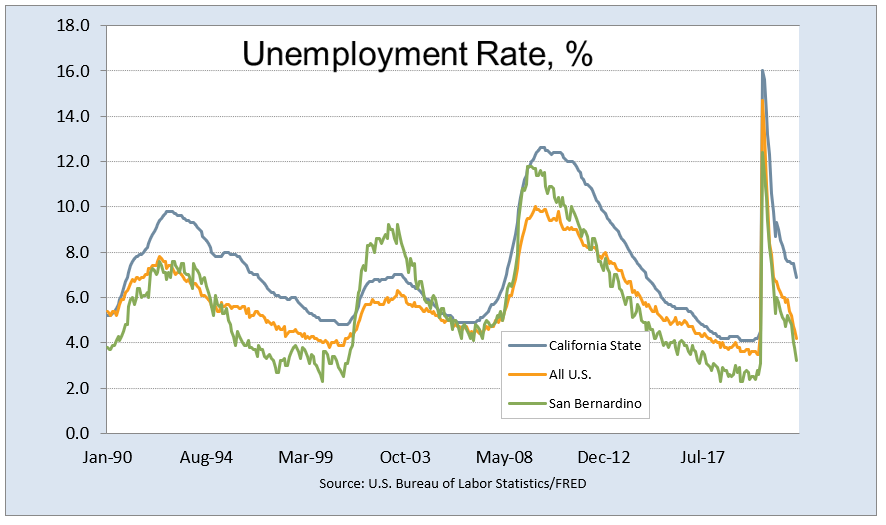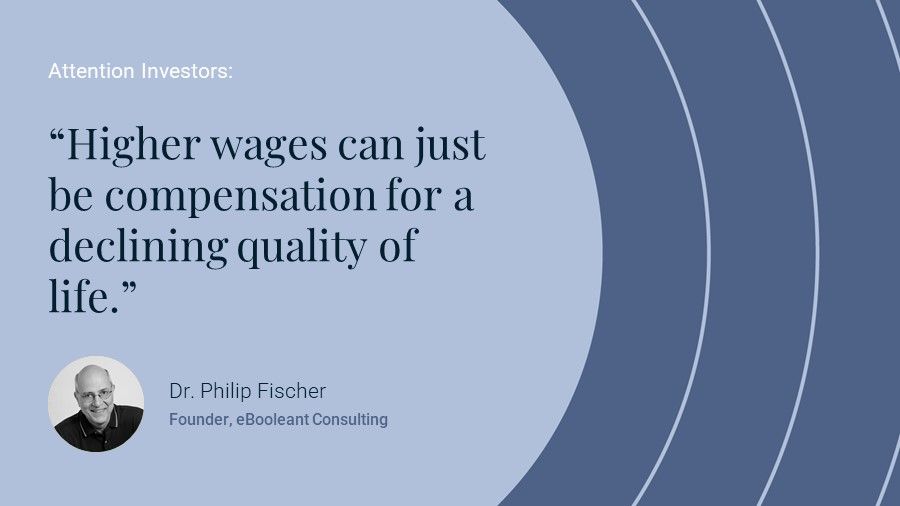If people are leaving a state, should you go there?

The US population trends show a (slowly) growing country with some depopulating cities. Having people move is clearly a message to the young who are choosing a place to live. If people are leaving a state, should I go there even if the job looks great? Even if it is a dream job, the people leaving an area are an important signal to pay attention to.
The State of California is the Sunshine state and continues to attract a great deal of talent. It has a vast amount of opportunity and wealth. But the culture is notably anti-business. The effect of the state policies is beginning to show up in the official numbers. From July 2020 to July 2021 the state population fell 0.44%. This amounted to 173,000 people, which is notable because it continues a decline from the previous year. It breaks a long-term trend of continuous growth.
The current declines are the first ever for the state, which in and of itself is a seminal piece of information. Demographers of the state insist that their data does not support a “CalExodus” and is attributable to a collection of short term effects including: reduced immigration and an increase in remote work. The state results showed the inland counties gaining and San Francisco area uniformly losing population.
Taken together the argument is that fewer people want to move to the San Francisco area. The current residents are not exiting at a high rate, but the data has changed and economic scenarios, including growth, taxes, and population decline, are clearly darkening the region.
Silicon Valley is the bellwether
California is the wealthiest state in the nation. At about six trillion dollars in wealth, it holds seventeen percent of the total US wealth. While this is impressive, two features mitigate against it. First the population of the state is large by this country’s standards, 39 million. This is about twelve percent of total US population. As a result, the wealth concentration is high but not necessarily as impressive as the state economists think. In fact, the US Chamber of Commerce uses several measures of wealth and places California in the twelfth position with Connecticut as number one.
During the pandemic, California experienced mixed economic performance. Graph 1 shows two interesting features of the unemployment rate in the state. First, the state’s unemployment rate has lagged the nation by a wide margin for the last three decades and is doing so again now. Much of this extends from the state’s growing anti-business posture. Companies and individuals widely deride the antibusiness policies of the state of California.
Graph 1

In fact, the strength of the economy is shown as evidence that the state is doing just fine. The anti-business trends are a slow creep in a state the size of forty million people. And the state’s advocates say:
“From the end of the last recession through 2019, according to the Bureau of Economic Analysis, California’s economy grew 34.4%, Florida’s by 23.2%, Tennessee’s by 18.9% and North Carolina’s by 16.7%. The only one of the four to keep pace with California in that time span was Texas, at 34.0%.” [1]
We should note here that Texas, which is the prime competitor, had a growth rate which was essentially the same as the booming California. (FYI: My calculations yield different results for the relative gains. While California is still the winner, Florida, New York, and Texas had close to the same growth rate per year as California.)
So, should you move there?
When we think about moving to California, we usually think of a coastal county not Fresno. These coastal counties include Silicon Valley. And these are where the population loss is occurring.
Now with remote work, the burden is on California to improve its policies. Other states have had their day in the sun only to have their tax policies undercut their desirability. Taxachusetts is a prime example. That was the tag given to Massachusetts for its poor tax policies. California deserves it now.
And if you do move there, expect companies to compensate you for the higher taxes and the general anti-business environment.

We hope you enjoyed this article. Please give us your feedback.
This article is not intended as investment, tax, or financial advice. Contact a licensed professional for advice concerning any specific situation.
[1] Hiltzik, Michael, “Column: If California is such an 'anti-business' state, why is its economy so strong?” LA Times, May 10, 2021.





